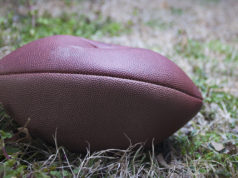The officiating world has no objective meter, like win-loss record, to help determine who keeps their job and who gets fired. It often takes an assigner making judgment calls about the ability of staff. Everyone would agree that a certain amount of subjectivity goes into decisions about which officials advance to higher levels and which ones get cut. Certain types of behavior by officials, though, can get them fired or disciplined. Some are obvious. Others are less apparent. Let’s look at a few.
Dishonesty
Cheaters cannot officiate. At higher levels of play, such as professional or major college football or basketball, even the appearance of dishonesty may get an official fired. An official who openly gambles on sports creates a perception of dishonesty that tarnishes the integrity of the game. Is that person manipulating point spreads or picking winners?
Criminal behavior
Many officials working in youth, scholastic or college leagues are subject to some form of criminal background check. Convictions for crimes that call into question one’s honesty or the safety of participants certainly will prevent someone from officiating.
Bias
An official who favors one team will have a short career. That is why officials must avoid working games involving their hometown team, alma mater, school where their friend or relative coaches, or any other team for which they may have an affinity. Even the appearance of favoritism is likely to draw complaints. For that reason, many leagues or associations have rules prohibiting an official from working at his or her alma mater (at least for a period of years) or games involving other teams with a personal connection.
Recklessness or gross negligence
The official who allows an outdoor football, baseball, softball or soccer game to continue during a lightning storm will likely get fired. Officials simply cannot ignore safety rules.
Unreliability
Perhaps the most common way officials find themselves on the outs is through missing game assignments or chronic tardiness. Few things infuriate administrators and assigners more than no-show officials. Emergencies happen, but with instant communication available through cellular phones, text messages and email, there are fewer excuses.
Unprofessionalism
Reliability is a factor of professionalism, but it goes beyond showing up on time for a game assignment. It includes responding promptly to communications, personal grooming, physical fitness, dressing professionally and generally putting forth a positive image. Outside of the lines, an incident of public drunkenness might get an official disciplined because, like a judge in the courtroom, an official should present an image above reproach.
Incompetence
While an official’s competence may be more important to the game itself than any of the items covered, it probably is the most subjective area to evaluate. Maybe he or she calls a game too loose or too tight for the likes of the league, observer or assigner. Those are judgment calls that a fired official may second guess. Some officials might not know or apply the rules properly. Some people just aren’t good at their jobs.
What's Your Call? Leave a Comment:
Note: This article is archival in nature. Rules, interpretations, mechanics, philosophies and other information may or may not be correct for the current year.
This article is the copyright of ©Referee Enterprises, Inc., and may not be republished in whole or in part online, in print or in any capacity without expressed written permission from Referee. The article is made available for educational use by individuals.
















